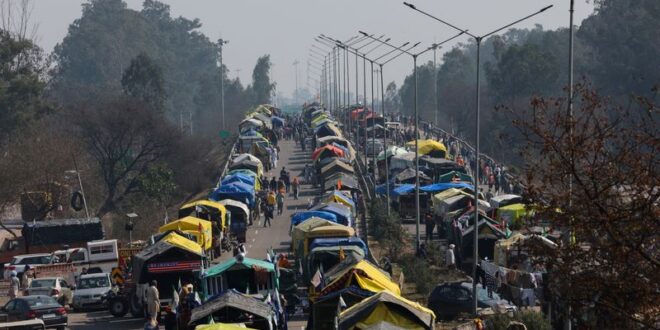AMBALA, India (Reuters) – Indian farmers demanding higher prices for their crops will postpone a planned protest march to New Delhi until unions hold another round of talks with government ministers on Sunday.
Agriculture Minister Arjun Munda, who met farmers’ representatives on Thurdsay along with Commerce Minister Piyush Goyal and Minister of State for Home Affairs Nityanand Rai, said the talks were “positive”.
“We have decided that the next meeting to take the discussion forward will take place on Sunday at 6 pm…We believe we will all find a solution together peacefully,” he told reporters following Thursday’s meeting.
Protest leader Jagjit Singh Dallewal also told reporters the farmers would hold off their march for now.
“When the meetings have started, if we move forward (towards Delhi) then how will meetings happen?” Dallewal told reporters, adding that the protest “will continue peacefully”.
Thousands of farmers had embarked on the “Delhi Chalo”, or “Let’s go to Delhi” march earlier this week to press the government to set a minimum price for their produce, but they were stopped by security forces about 200 kms (125 miles) away from the capital, triggering clashes.
The protests erupted a few months before India is due to hold national elections in which Prime Minister Narendra Modi is seeking a third term. Farmers form an influential voting bloc.
The farmers remained camped on the border between Punjab and Haryana states on Friday. Security forces have used concrete and metal barricades, as well as drones carrying tear gascanisters, to stop them for advancing.
The protest comes two years after Modi’s government, following a similar protest movement, repealed some farm laws and promised to find ways to ensure support prices for all produce.
(Writing by Sakshi Dayal; editing by Miral Fahmy)
 BeritaKini.biz Berita Viral Terkini di Malaysia
BeritaKini.biz Berita Viral Terkini di Malaysia





